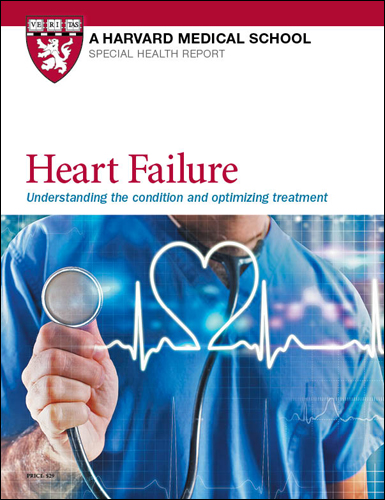How COVID-19 can compromise your heart health
Even a mild case may raise your risk of cardiovascular disease for as long as a year afterward.
- Reviewed by Deepak L. Bhatt, M.D., M.P.H, Former Editor in Chief, Harvard Heart Letter

Two years into the coronavirus pandemic, almost half of all Americans had been infected with SARS-CoV-2, the virus that causes COVID-19. While most have fully recovered, COVID survivors — even those with mild infections — face a higher risk of cardiovascular problems for up to one year later, a large study suggests.
"We already knew that like other serious infections, COVID-19 can cause inflammation that increases heart problems in the short term — that is, soon after a person is infected. This new study looked at the longer-term, chronic risk, from 30 days up to one year after infection," says cardiologist Dr. C. Michael Gibson, professor of medicine at Harvard Medical School.
Published in March 2022 in Nature Medicine, the study relied on health records from the U.S. Department of Veterans Affairs. Researchers identified 153,760 people infected with the coronavirus between March 1, 2020, and Jan. 15, 2021 (before vaccines were widely available) and compared their rate of new cardiovascular problems with two groups of uninfected people in the VA system — about 5.6 million during the same period and 5.9 million before the pandemic.
Compared with the uninfected people, COVID survivors were
- 72% more likely to develop heart failure
- 63% more likely to have a heart attack
- 52% more likely to experience a stroke.
These heightened risks were evident regardless of age, race, and sex, and also appeared in people who were free of heart disease before they became infected, suggesting that even people at low cardiovascular risk are vulnerable to COVID's cardiac legacy, the authors say. What's more, increased risks were even seen in people who (like most people who catch COVID) had milder cases that didn't require a hospital stay. However, people who were hospitalized, especially those who ended up in the intensive care unit, tended to face the highest risk of a serious heart-related problem during the year after they were infected.
Body and brain effects
The SARS-CoV-2 virus wages attacks on many different fronts. The coughing, congestion, and fever triggered by the infection puts extra stress on the heart, which may struggle to meet the body's oxygen needs. The virus may also directly invade or inflame heart tissue, injuring the heart muscle. But the damage isn't limited to the chest.
"The virus can attack and injure the endothelium, the thin membrane that lines the inside of the blood vessels," says Dr. Gibson. The body's immune response triggers an outpouring of inflammatory cells that activates the clotting system, creating a dangerous combination of "angry" vessels and "angry" blood, he explains. As a result, blood clots can form in arteries and veins throughout the body and brain.
In addition to causing heart attacks and strokes, these clots can also lodge in leg veins (a problem known as deep-vein thrombosis) or in the lungs (an uncommon but potentially deadly complication called pulmonary embolism). In the study, pulmonary embolism was nearly three times as common among COVID survivors compared with uninfected people. But being less active — possibly due to fatigue and other symptoms of "long COVID" — also leaves people more vulnerable to clots, Dr. Gibson notes.
Long COVID complications
Long COVID refers to symptoms such as fatigue, body aches, shortness of breath, and difficulty concentrating ("brain fog") that continue or emerge weeks or months following COVID infection. Officially known as post-acute sequelae of SARS-CoV-2 infection (PASC), the condition is thought to stem mainly from damage to the nervous system, although cardiovascular problems may also play a role. One common PASC symptom consists of dizziness and a racing heart when a person stands up, known as postural orthostatic tachycardia syndrome. "I had this symptom myself after I recovered from COVID," says Dr. Gibson, who contracted the virus in early 2020, at the very start of the pandemic. While his symptoms have improved, PASC symptoms can endure much longer for some people.
The recent study results underscore the importance of not getting infected (or reinfected) with COVID, says Dr. Gibson. Stay up to date with the CDC's recommendations for vaccinations, boosters, and other steps to avoid the coronavirus by visiting Harvard Health Publishing's coronavirus resource center (/cvrc).
Image: © Morsa Images/Getty Images
About the Author

Julie Corliss, Executive Editor, Harvard Heart Letter
About the Reviewer

Deepak L. Bhatt, M.D., M.P.H, Former Editor in Chief, Harvard Heart Letter
Disclaimer:
As a service to our readers, Harvard Health Publishing provides access to our library of archived content. Please note the date of last review or update on all articles.
No content on this site, regardless of date, should ever be used as a substitute for direct medical advice from your doctor or other qualified clinician.
















